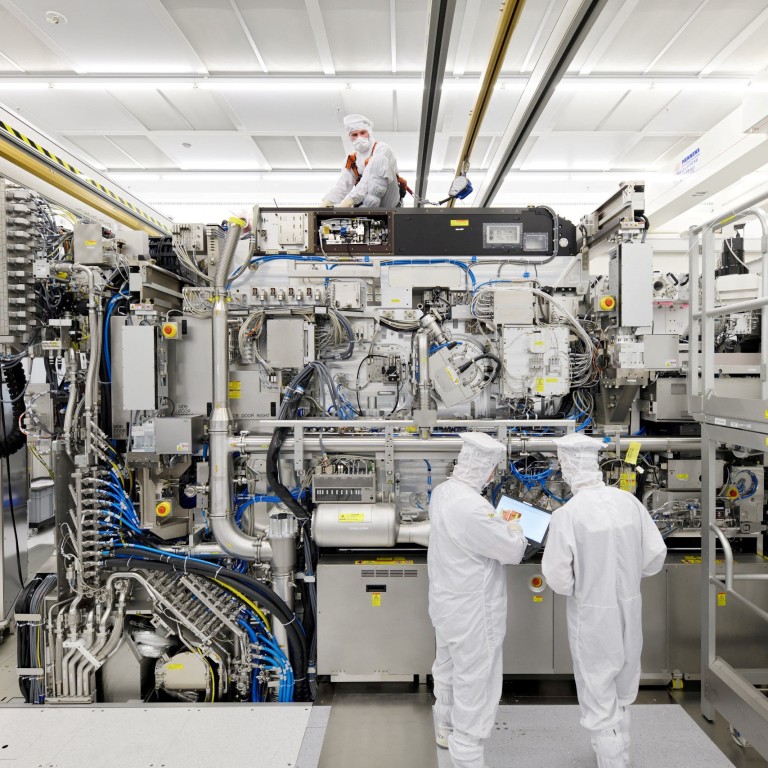
Dutch lithography gear giant ASML expects steady China sales in 2023 despite US pressure on export curbs
- ASML still sends older deep ultraviolet lithography machines to China, although these are now a focus of the US-Dutch talks
- CEO Peter Wennink says the first effect of the US rules was to push Chinese chip makers to invest in capacity, albeit to make slightly less sophisticated chips
ASML, which dominates the market for machines used in one step of the chip-making process, was restricted from selling its most advanced extreme ultraviolet (EUV) machines to Chinese customers in 2019 following US pressure, due to fears they could be used to make chips that have military applications.
The company still sends older deep ultraviolet (DUV) machines to China, although these are now a focus of the US-Dutch talks. Such sales totalled around 2.16 billion euros (US$2.35 billion), or 14 per cent of total revenue, last year, down marginally from 2.17 billion euros in 2021.

In an interview with Reuters following the company’s fourth quarter earnings, Wennink said he expected sales to China to be “about the same” this year, adding that orders from Chinese firms make up about 15 per cent of the company’s 40 billion euro order backlog.
“They just become very practical,” he said, adding that Chinese customers are investing in 20 nanometre chips and larger - those considered cutting edge before the year 2014.
“This is an area where there is massive shortage.”

